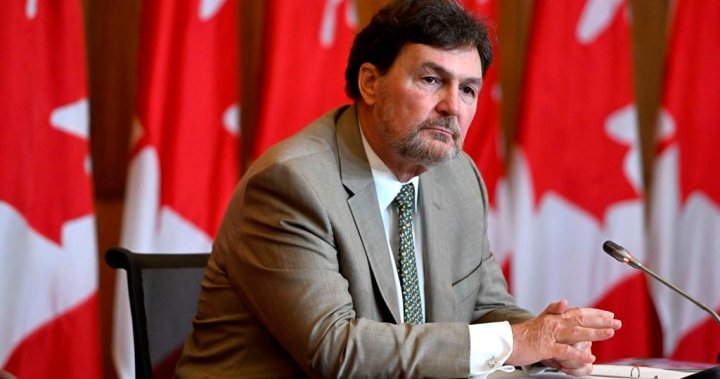The top justice of the Supreme Court of Ukraine claims that the country’s court system has been rendered ineffective and that it is now unable to handle the tens of thousands of criminal reports that have resulted from the conflict.
In a presentation made to an Ottawa conference on Monday, Justice Vsevolod Kniaziev stated that since Russia’s invasion of Ukraine began earlier this year, more than a tenth of Ukrainian courthouses have been demolished or damaged, and judges are under threat from Russian occupiers.
But he added that the system is making every effort to adapt in an effort to close institutional gaps and prosecute offenders for war crimes.
“A lot has changed in our lives. At a meeting of the International Organization for Judicial Training, Kniaziev said, “It is now separated into before and after the onset of war.
We eagerly read the news after rising early. We read the most recent news from the general staff before we go to bed,” he remarked, referring to the Ukrainian military.
He pointed to the latest statistics from Ukraine’s prosecutor general’s office, which show that more than 42,000 war crimes perpetrated by Russian actors have been registered in the country’s criminal justice system since the war began, along with some 80,000 crimes related to national security.
The system has experienced significant losses as it tries to keep up with the increase of reports, according to Kniaziev.
According to him, 11% of court buildings have been damaged or destroyed by missiles and bombs, and Russian officials have intimidated judges in seized territory.
Judges from Ukraine cannot leave the occupied territory, according to Kniaziev. They conceal themselves from the Russian soldiers.
He claimed that certain judges had allegedly been detained and subjected to torture in an effort to scare other justices and keep them from hearing cases involving Russian military.
He continued that some people have started destroying the records that attest to their membership in the judiciary.
In order to close the biggest gaps, he said, more than 400 new and existing judges have been transferred across the nation. But he pointed out that 2,000 judges were already in low supply before the conflict.
Kniaziev claims that despite this, Ukraine will keep track of all atrocities in order to one day bring those responsible to justice.
Kniaziev met with Chief Justice Richard Wagner of Canada’s Supreme Court earlier on Monday to explore how Canada can continue to support Ukraine.
Kniaziev declared, “We are making every effort not to restrict our citizens’ access to justice.”
Supreme Court justices in the troubled nation are giving the military 60% of their pay, but Kniaziev said more funding is required to implement long-lasting institutional improvements.
Canada, according to Wagner, will continue to support Ukraine as an ally and provide guidance as needed. He claimed that Canada had in the past offered suggestions to increase transparency, including in the selection of judges.
“The judge can only continue to offer guidance, encouragement, and cooperation. When Ukraine needs us, we will be there, stated Wagner.
But guidance and financial support are only a part of what Kniaziev is calling for.
Due to Russia’s continuous invasion, officials are debating what actions should be taken after the battle is over.
According to Kniaziev, “I believe that this is a test of international justice, and it is the test of the entire system of international security.”
The International Organization for Judicial Training is hosting a four-day assembly of judges from all across the world.
The conference’s main goal is to provide judges better insight into the disadvantaged groups they deal with in court.
Despite judicial system issues, Ukraine is prosecuting war criminals, according to the top justice

